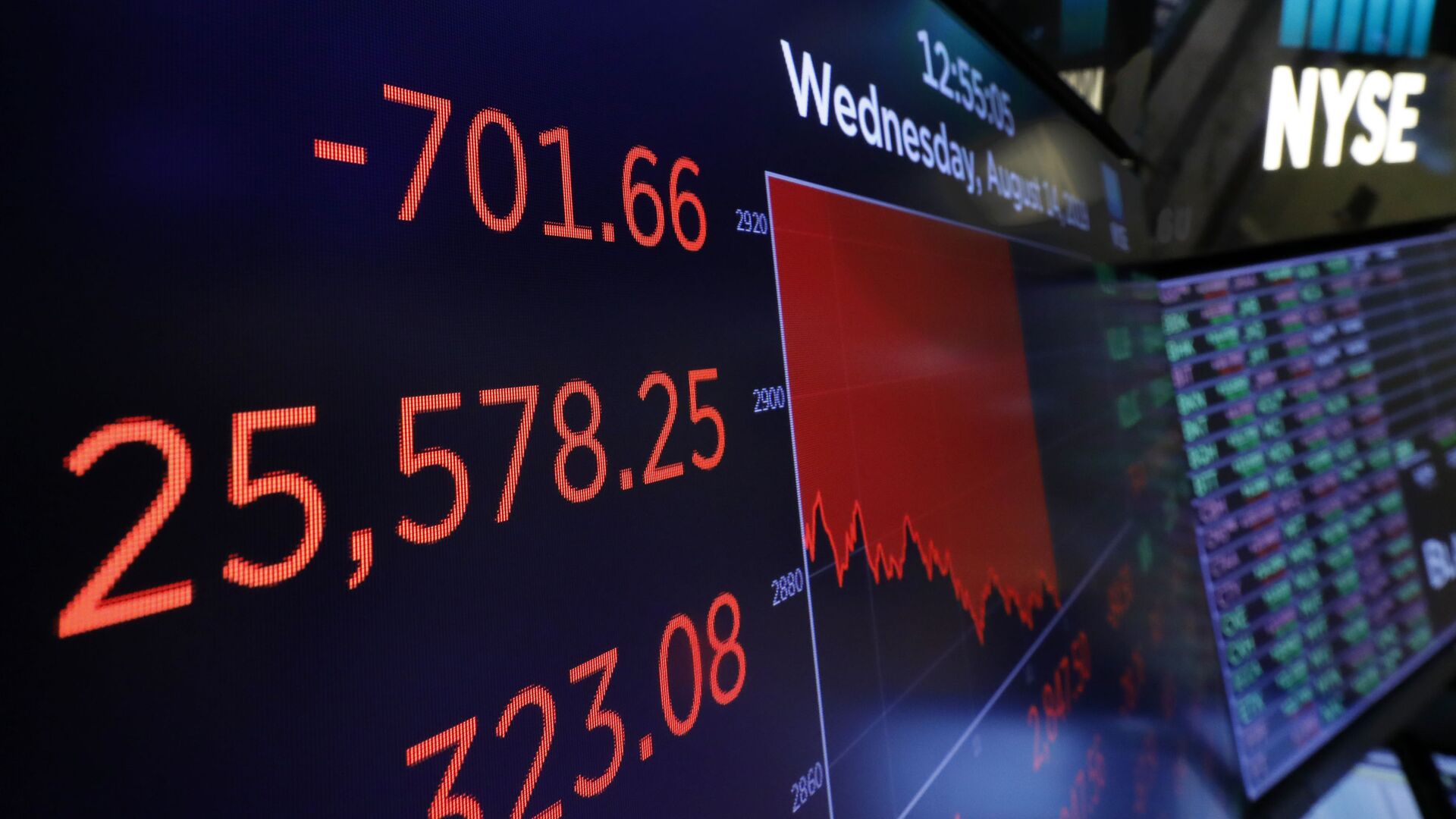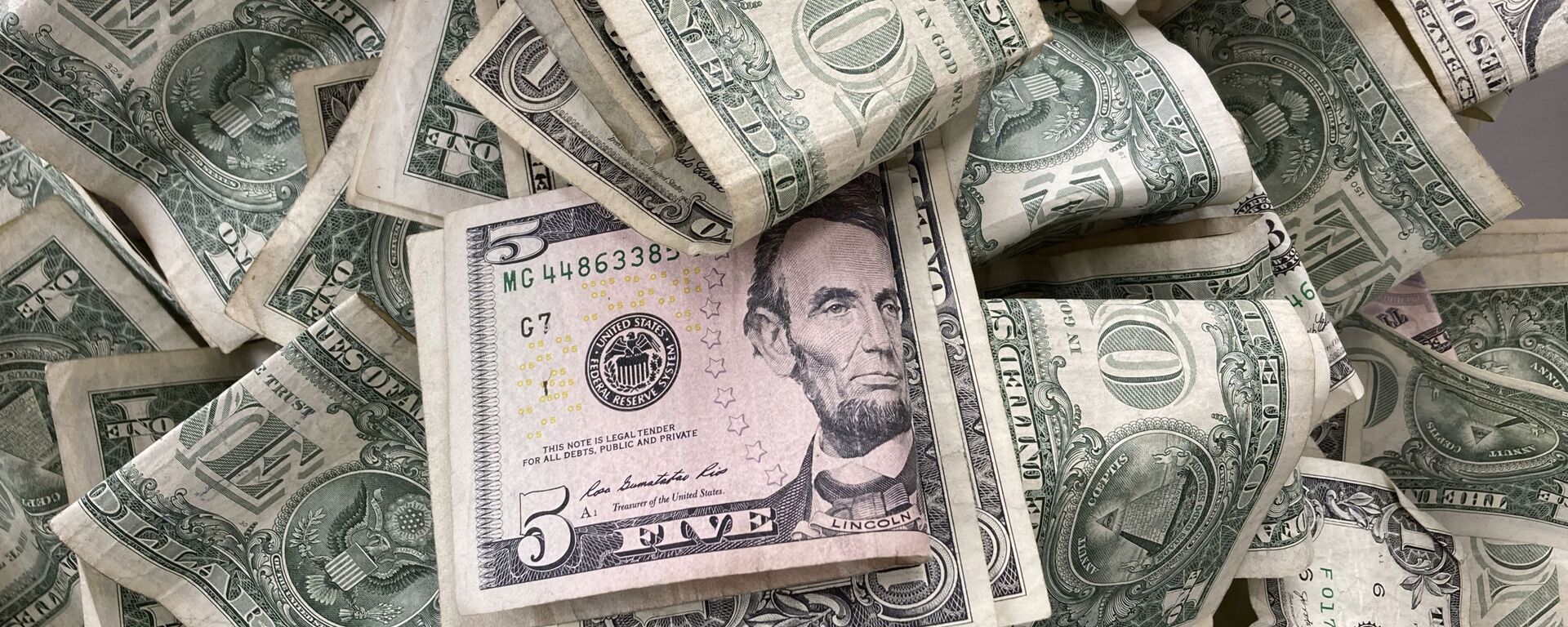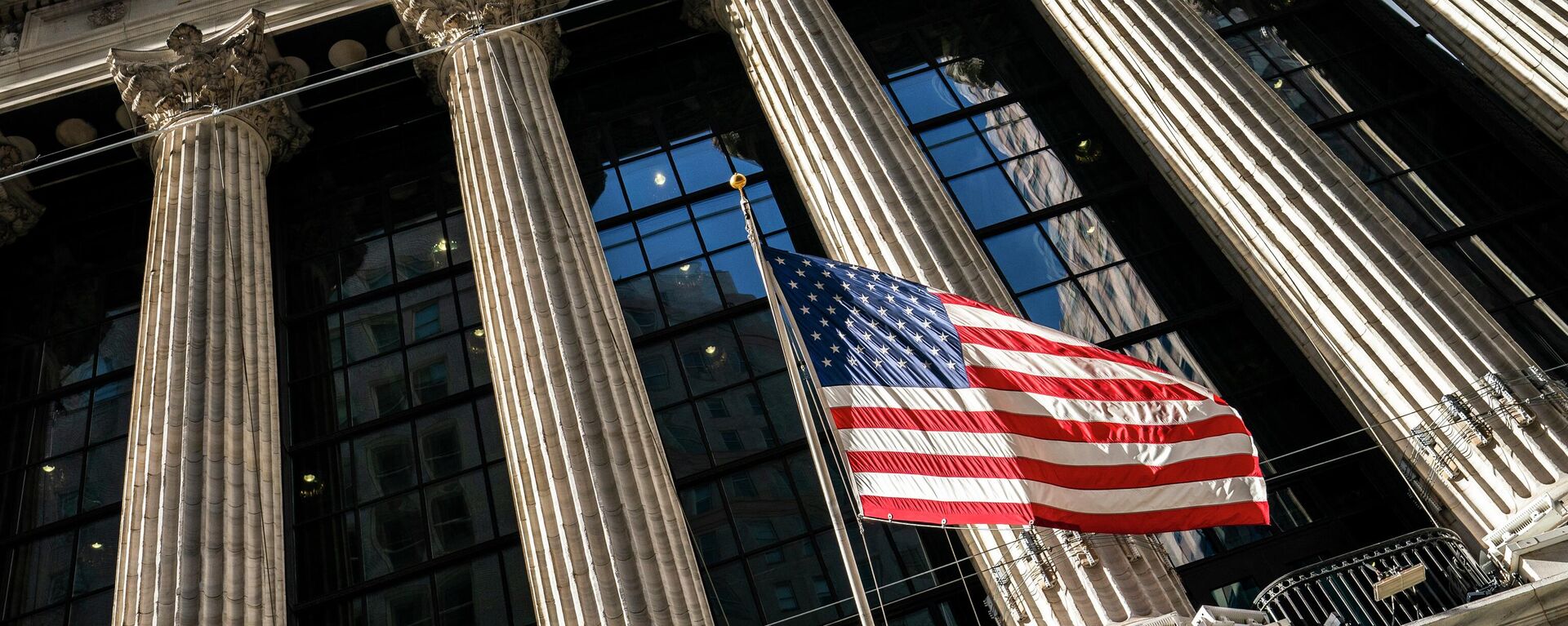https://sputnikglobe.com/20220613/us-stocks-nosedive-over-850-points-amid-inflation-recession-fears-1096286672.html
US Stocks Enter Bear Market as Dow Plummets 876 Points Amid Inflation, Rate Hike Fears
US Stocks Enter Bear Market as Dow Plummets 876 Points Amid Inflation, Rate Hike Fears
Sputnik International
Recent data from the US Bureau of Labor Statistics revealed that May’s Consumer Price Index (CPI) rose 8.6% from a year ago, amounting to the fastest increase... 13.06.2022, Sputnik International
2022-06-13T20:01+0000
2022-06-13T20:01+0000
2022-08-06T13:36+0000
us stocks
dow jones
recession
federal reserve
nasdaq
s&p 500
wall street journal
jerome powell
interest rates
consumer price index (cpi)
https://cdn1.img.sputnikglobe.com/img/107655/21/1076552112_0:160:3073:1888_1920x0_80_0_0_4996a2c39944c0594796428d01b3ec82.jpg
US stocks fell into bear market territory on Monday as investors anticipated the prospect of the US central bank raising interest rates once again in an attempt to tamp down inflation. The S&P 500 fell 3.9% on June 13, plummeting the index to its lowest level since March 2021, while the Dow Jones Industrial Average sank 876 points (2.8%) and the Nasdaq Composite observed a 4.7% tumble. The Nasdaq has dropped more than 10% in the past two trading sessions alone. All major sectors of the S&P went into the red on Monday, with tech, consumer discretionary and energy down more than 4%. Signature Bank (SBNY) had one of the worst showings, dropping nearly 13%. Tesla continued to log losses, tumbling about 6.8%. Amazon slumped some 4.9%. Stocks began a dramatic shift after the Wall Street Journal published a report suggesting the US Federal Reserve may decide to raise interest rates by 0.75 percentage points rather than the expected half-percent increase. The US central bank has not raised interest rates by 0.75 percentage points--triple the usual amount--since November 1994. After raising interest rates by double the usual increment last month, Fed Chair Jerome Powell asserted that the bank would continue a similar course of action until economic data provides "clear and convincing evidence that inflation pressures are abating and inflation is coming down." News traveled quickly among traders and, as of Monday, the Fed Funds futures tool reports a 28% probability that the central bank's target interest band will increase by 0.75 percentage points and a 72% probability that it will increase by the anticipated increase of 0.5 percentage points, according to CME Group data. Economists' predictions of a three-quarter rose by 25% since last week.As consumers continue to be hit with exorbitant gas prices, mortgages and other loans are also falling victim to the fragile US economy, with the 10-year Treasury yield jumping from 3.15% to 3.37%, the highest level since 2011, according to the Associated Press.
https://sputnikglobe.com/20220613/between-inflation-and-a-hard-place-fed-risks-recession-by-raising-interest-rates-experts-say-1096284802.html
https://sputnikglobe.com/20220513/soft-landing-of-us-economy-may-depend-on-factors-beyond-federal-reserves-control---powell-1095477252.html
Sputnik International
feedback@sputniknews.com
+74956456601
MIA „Rossiya Segodnya“
2022
News
en_EN
Sputnik International
feedback@sputniknews.com
+74956456601
MIA „Rossiya Segodnya“
Sputnik International
feedback@sputniknews.com
+74956456601
MIA „Rossiya Segodnya“
us stocks, dow jones, recession, federal reserve, nasdaq, s&p 500, wall street journal, jerome powell, interest rates, consumer price index (cpi), bear market, inflation
us stocks, dow jones, recession, federal reserve, nasdaq, s&p 500, wall street journal, jerome powell, interest rates, consumer price index (cpi), bear market, inflation
US Stocks Enter Bear Market as Dow Plummets 876 Points Amid Inflation, Rate Hike Fears
20:01 GMT 13.06.2022 (Updated: 13:36 GMT 06.08.2022) Recent data from the US Bureau of Labor Statistics revealed that May’s Consumer Price Index (CPI) rose 8.6% from a year ago, amounting to the fastest increase since 1981. The unexpected surge was also observed in core CPI (excluding energy and food), which rose some 6%.
US stocks fell into bear market territory on Monday as investors anticipated the prospect of the US central bank raising interest rates once again in an attempt to tamp down inflation.
The S&P 500 fell 3.9% on June 13, plummeting the index to its lowest level since March 2021, while the Dow Jones Industrial Average sank 876 points (2.8%) and the Nasdaq Composite observed a 4.7% tumble. The Nasdaq has dropped more than 10% in the past two trading sessions alone.
All major sectors of the S&P went into the red on Monday, with tech, consumer discretionary and energy down more than 4%. Signature Bank (SBNY) had one of the worst showings, dropping nearly 13%.
Tesla continued to log losses, tumbling about 6.8%. Amazon slumped some 4.9%.
Stocks began a dramatic shift after the
Wall Street Journal published a report suggesting the US Federal Reserve may decide to raise interest rates by
0.75 percentage points rather than the expected
half-percent increase.
The US central bank has not raised interest rates by 0.75 percentage points--triple the usual amount--since November 1994.
After raising interest rates by double the usual increment last month, Fed Chair Jerome Powell asserted that the bank would continue a similar course of action until economic data provides "clear and convincing evidence that inflation pressures are abating and inflation is coming down."
"And if we don’t see that, then then we’ll have to consider moving more aggressively," Powell told a WSJ conference last month. "If we do see that, then we can consider moving to a slower pace."
News traveled quickly among traders and, as of Monday, the Fed Funds futures tool reports a
28% probability that the central bank's target interest band will increase by
0.75 percentage points and a
72% probability that it will increase by the anticipated increase of
0.5 percentage points,
according to CME Group data.
Economists' predictions of a three-quarter rose by 25% since last week.As consumers continue to be hit with exorbitant gas prices, mortgages and other loans are also falling victim to the fragile US economy, with the 10-year Treasury yield jumping from
3.15% to
3.37%, the highest level since 2011,
according to the Associated Press.



